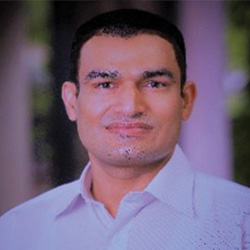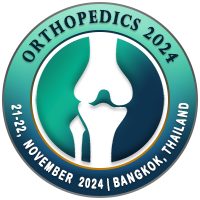
Mujib Ullah
Stanford University, USATitle: Therapeutic efficacy of cd9 enriched exosomes in osteoarthritis
Abstract
Osteoarthritis (OA), a common joint disorder with articular cartilage degradation as the main pathological change, is the major source of pain and disability worldwide. Despite current treatments, the overall treatment outcome is unsatisfactory. Thus, patients with severe OA often require joint replacement surgery. In recent years, mesenchymal stem cells (MSCs) have emerged as a promising therapeutic option for preclinical and clinical palliation of OA. MSCs-derived exosomes carrying bioactive molecules of the maternal cells, including non-coding RNAs (ncRNAs) and proteins, have demonstrated a significant impact on the modulation of various physiological behaviors of cells in the joint cavity, making them promising candidates for cell-free therapy for OA. This review provides a comprehensive overview of the biosynthesis and composition of MSCsderived exosomes and their mechanisms of action in OA. We also discussed the potential of MSCs-derived exosomes as a therapeutic tool for modulating intercellular communication in OA. Additionally, we explored bioengineering approaches to enhance MSCs-derived exosomes’ therapeutic potential, which may help to overcome challenges and achieve clinically meaningful OA therapies.
Biography
Dr. Mujib Ullah has completed his PhD in tissue engineering/regenerative medicine, and postdoctoral studies from Stanford University School of Medicine. Dr Ullah is the medical investigator in the Department of Regenerative Medicine, Stanford University. Previously he worked in Harvard University and MIT. He is editor-in-chief for Artificial Intelligence in Cancer, guest editor for ACS Nano, and section editor for Stem Cells Research and Therapy and Nature. He has published numerous papers and has served as an editorial board member for many journals, such as the American Journal of Bioscience and Bioengineering. Dr Ullah has designed many labs, protocols, and study sections. He has mentored many undergraduate, graduate, and postgraduate students. He has supervised and managed many projects and is the advisor for Bio Thinking and Bio Aims Society. He has received many grants, awards, and fellowships in the field of stem cells regeneration and the CPRIT award for Cancer therapies. He has established cell banks for worldwide distribution under NIH and FDA guidelines. He has developed quality assurance protocols for the Food and Drug Administration to monitor stem cell therapies in regenerative medicine.

